POLITICS
SENEGAL: War against Covid-19: Macky, a Heckled General

Having yielded to pressure from part of the Confederate authorities, President Macky Sall was repudiated by the other part of the religious power and the actors of the school. Starting from a strong consensus to lead the war against Covid-19, General Macky eventually lost control of the troop. By Babacar WILLANE
For someone who had every chance on his side, it begs the question of how President Macky Sall ended up so alone in the battle against Covid-19. At the beginning of the pandemic, the Head of State managed to unite radical and moderate opposition, civil society, in short all the living forces of the nation around his person. The National Assembly gave him carte blanche, with the enabling legislation that allows him to manage as he pleases.
But, in less than two months, the general (clumsy?) has exhausted all his cartridges.
Today, his authority is more flouted than ever, his image diminished. The head of state looks like a commander who has lost control of the troop, while the country is in the middle of a war against the new coronavirus.
Everything started from the pressure exerted on him by the religious and the informal sector. The decision to close the mosques became increasingly unpopular. A Seneweb source even indicates that some religious homes were ready to make the forced, because it was not a question for them to spend the Night of Destiny (Laylatoul Khadri) outside the mosques.
It was therefore necessary that the places of worship be opened again, at the latest before the last 10 days of Ramadan. Moreover, it is not for nothing that the Head of State has advanced his speech of 24 hours (Monday instead of Tuesday). Otherwise, he might be faced with accomplished act.
In economic terms, the informal sector accounts for more than 80% of activity. The decision of the Prefect of Dakar to close the markets in an alternative way could hardly prosper. Especially that the sellers of non-food products – mainly young people – had only 2 days in the week. Which was unbearable.
“You can’t stay five days without work. We give the state an ultimatum. If by Monday (May 11) the situation does not change, we will resume our activities willingly or forcibly”, threatened last Saturday the young merchants of the Dior market of Parcelles-Assainies.
Faced with this pressure and the risks of a social and religious revolt, the supreme leader of the armies surrendered. On Monday, April 11, Macky Sall announced the reopening of mosques and markets.
A poorly negotiated turning point
Only, instead of saving the face of the president, the measure has come to bury him. In fact, since then, the religious leaders’ outings have multiplied, disavowing the head of state. The Church was the first to stand out. The clergy quickly indicated that it would keep its places of worship closed, as a precautionary measure. She will be followed by the Omarian family.
Even the imam of the Great Mosque of Dakar, against the closure in the beginning, has issued a statement to say that the doors of the building will remain closed. The same goes for the Great Mosque of Saint Louis. And as to say that the closure has gone to be majority, the Khalifa General of Tidianes has also decided that all mosques under his authority will remain closed. On the Ibadous side, Al Falah has not yet determined.
In the end, for the city of Dakar, only Massalikul Jinaan will be open, among the major mosques of the capital.
In total, this decision of the religious authorities sounds like a disavowal to the head of state. Thus, after capitulating to the pressure of one part of the religious power, President Macky Sall saw the other side taking the opposite step of its decision to open the mosques.
Besides the religious, presidential decisions are also contested by the school world. Teachers, students and even parents rejected the reopening of schools on June 2. In the end, the president seems to be alone against all.
Communication dissonance
According to Alioune Tine, founder of the Africa Jom Center, the head of state badly negotiated the turning point of deconfinement with all the influential actors concerned. “When we had fewer deaths and cases, we were confined. And now that it is worse, we screw up without a good preparation of the opinion. The result is the discomfort of the caregivers, the anger of the public and some political parties,” he stresses.
Same analysis from Sahite Gaye, Phd in Information and Communication Sciences. In the opinion of this specialist, this imbroglio is explained by the fact that in terms of communication, last Monday’s speech is the most ‘clivant’ since the beginning of the crisis. “The last speech is not consistent with the one at the beginning. There is a communicational dissonance with perception,” he stresses.
According to the teacher-researcher at Cesti, in a crisis situation, we do not have the same audience. The audiences are plural, depending on the interests. For example, those calling for open markets do not have the same objectives as those calling for the reopening of mosques, nor do those calling for the continued closure of schools. There is therefore a need for targeted communication.” “Wasn’t there supposed to be a process to discuss with the public that could impact communication? “, asks Sahite Gaye, who adds that the decision-making process was not coherent.
“In a crisis, it is perception that is important”
According to Alioune Tine, it is a tendency in Africa to deconfine. A novelty following the action of intellectuals who recommended to the heads of state of the continent not to sacrifice the economy, the informal sector in particular. Only, regrets the former boss of the Raddho, the method does not always fit. ” Instead of creating consultation with these different actors to negotiate the deconfinement together, we saw the consultation of the religious leaders who exerted strong pressure on the president, to the point of forcing him to anticipate his speech by fleeing certain decisions” said Tine.
Added to this is the break of equality between faithful citizens, knowing that mosques in Touba and Medina Gounass were open, while others were closed in Dakar and elsewhere.
The result is that the President’s grip is undermined. “Clearly, there is an erosion of state authority that gives the impression of yielding to pressure,” says Mr Tine. As did his authority, so did his image. “Just look at the next day’s newspapers with headlines like “Macky Sall threw the mask”, “The President capitulated”, adds Sahite Gaye.
According to the teacher-researcher, the hesitations of an authority, in some exceptional circumstances, weaken public speech. “In a crisis, perception is important. This is why what has happened can even have an impact on future decisions, especially since we have not yet come out of the crisis,” Mr Gaye worries.
Rethinking the institutions
In any case, the reopening of the mosques has finished dividing the Muslim community and weakening state authority. This makes Alioune Tine say that these are the two pillars that cement the Senegalese life-together, since the election of Blaise Diagne, which are at stake, namely: politics and religion.
“Politics no longer makes sense, no more vision of the world, no more ideology, no more ethics. This impacts the erosion of authority and legitimacy. Brotherhood Islam is increasingly divided. Radical Islam, together with terrorist organizations in some countries, is a factor of instability and deadly conflict,’ he said.
Hence the need, in his opinion, to rethink the institutions after Covid-19, to get out of the instrumentalisation of politics and religion, in order to build a new world pledge of stability.
Source : SeneWeb / By Babacar WILLANE
POLITICS
SENEGAL – Harassment, food tampering, communication ban: the Diomaye Coalition President alert on the conditions of detention of his candidate
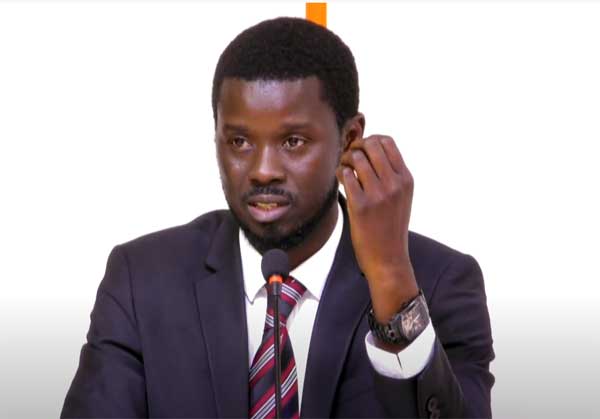
The Diomaye Coalition President warns about the conditions of detention of candidate Bassirou Diomaye Faye. The members of the said coalition inform that his visiting days have been changed and he can only receive visits on Tuesdays and Wednesdays within the Court. He is also prohibited from telephone communications. The Diomaye Président coalition denounces this relentlessness against its candidate and holds the regime responsible for any attack on the physical or moral integrity of their candidate.
“Following the official launch of the Diomaye President Coalition and the massive adhesions of opposition leaders, it was expected that the government in power would reinstate the candidate Bassirou Diomaye Faye in his rights, particularly in the context of a presidential election of which he is undoubtedly the favourite,” reads a statement.
However, the Coalition announces that the Prison Administration, under the responsibility of the Minister of Justice, has decided to unilaterally and without justification tighten the conditions of detention of candidate Bassirou Diomaye FAYE by:
“A unilateral modification of his visiting days now, the candidate Bassirou Diomaye Faye can only receive visits on Tuesdays and Wednesdays, and this within the Court itself. A ban on telephone communications under the pretext that the favorite candidate in the presidential election whose campaign begins in two days has conversations whose purpose is political. A continuous harassment of the room of the candidate Bassirou Diomaye Faye is now searched at every turn.”
Moreover, she notes a «lack of security measures despite her status as a candidate in the presidential election of February 25, 2024 and multiple alerts on probable alterations of the food served to her. Candidate Bassirou Diomaye Faye no longer has breakfast.”
The Diomaye President coalition denounces this relentlessness against its candidate. “We strongly denounce this umpteenth violation of the principle of equality between candidates in the presidential election of February 25, 2024. We call for the immediate release of Bassirou Diomaye Faye to actively participate in the election campaign.”
In any case, she stresses, «the State of Senegal has the responsibility to ensure its protection if it unjustly decides to maintain it in the bonds of detention».
In short, the Diomaye Coalition President indicates that «Macky Sall, Aissata Tall Sall and Amadou Ba will be held responsible for any attack on the physical or moral integrity of the candidate Bassirou Diomaye Faye».
Source : PressAfrik
POLITICS
SENEGAL – 100.000 Housing: Ismaila Madior Fall á Bambilor for the inauguration
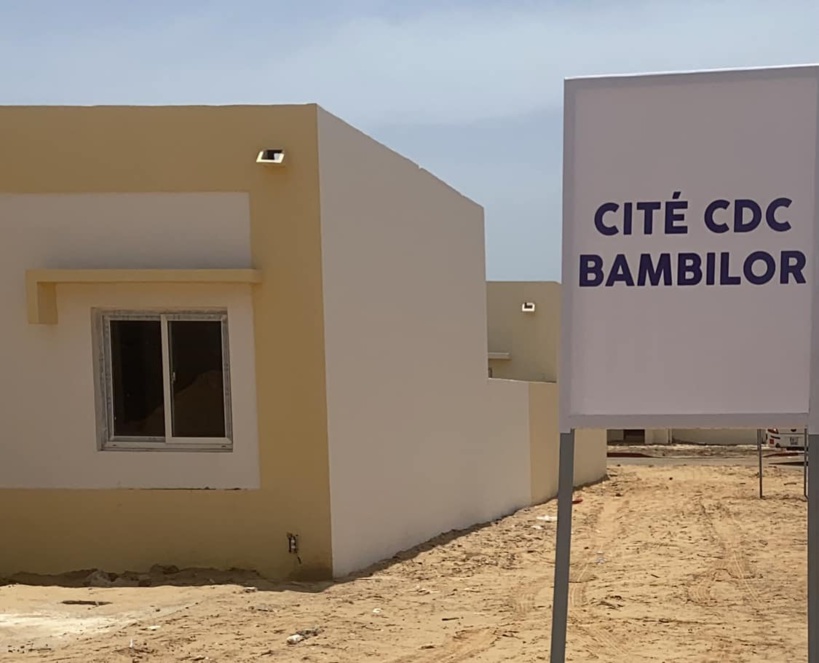
This Friday, the Minister of Foreign Affairs and Senegalese from outside, Ismaila Madior Fall, accompanied by Minister Annette Ndiaye Seck, will inaugurate the “City of the Diaspora” in Bambilor. This project aims to prevent the creation of new slums and encourage the mass production of accessible housing.
According to the Observer, the aim is to boost and diversify the supply of housing for low-income and/or irregular households, while facilitating access to adapted bank financing. With a clear vision of strengthening the construction ecosystem, this initiative demonstrates the commitment of the Senegalese government to its diaspora.
The 100,000 units planned in this project were developed in partnership with the Senegalese government and its collaborators, seeking to meet the specific housing needs and concerns of Senegalese living abroad.
Source: PressAfrik
POLITICS
SENEGAL – Thione Niang “I have no program, I have a vision”
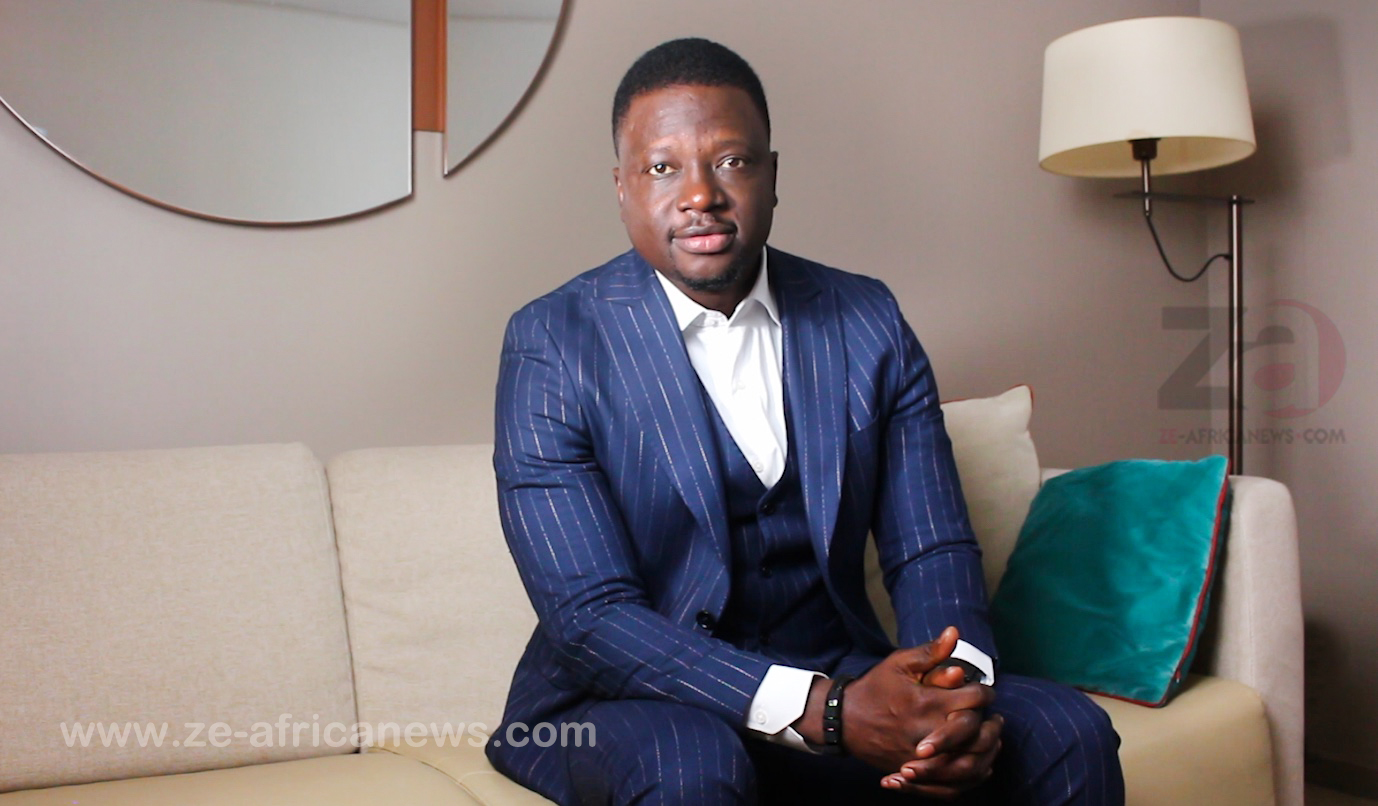
Social entrepreneur Thione Niang is a candidate in the February 2024 election. In this exclusive interview, he reveals his vision, his projects in particular, “Give One project”, “JeufZone” which includes an agricultural component, training but also women’s empowerment.
It was an opportunity for the social entrepreneur to look back on his beginnings, on the process of returning to his country of origin, Senegal. He addressed the political question: his involvement in the political ring while giving his opinion on the Senegalese political landscape.
African politics is another aspect of this interview. The urgency of the industrialization of the continent, the urgency of helping African youth so that they have the same opportunities for development as other young people in the world, is close to his heart.
On the question of the African school, Thione Niang proposes a redesign of it, starting with a paradigm shift and especially the content of the teachings. According to him, we must return to our fundamentals, namely our own models of identity representations, notably Cheikh Anta Diop or Nkrumah.
Thione Niang, also told us about vision, his vision and not a program, to give each Senegalese what he deserves both in terms of education, health, but also on the development of infrastructure, which, according to him, necessarily passes first and foremost through food self-sufficiency, hence his return to the land for an assertive agricultural progress.
He ended up sending a strong message to all Senegalese.
The rest of the interview on this link:
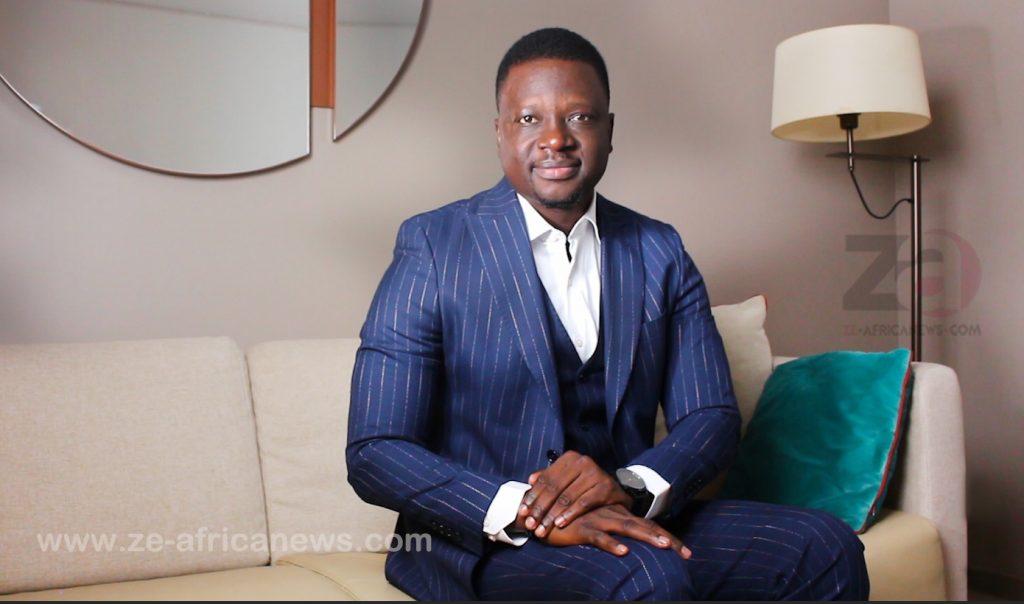
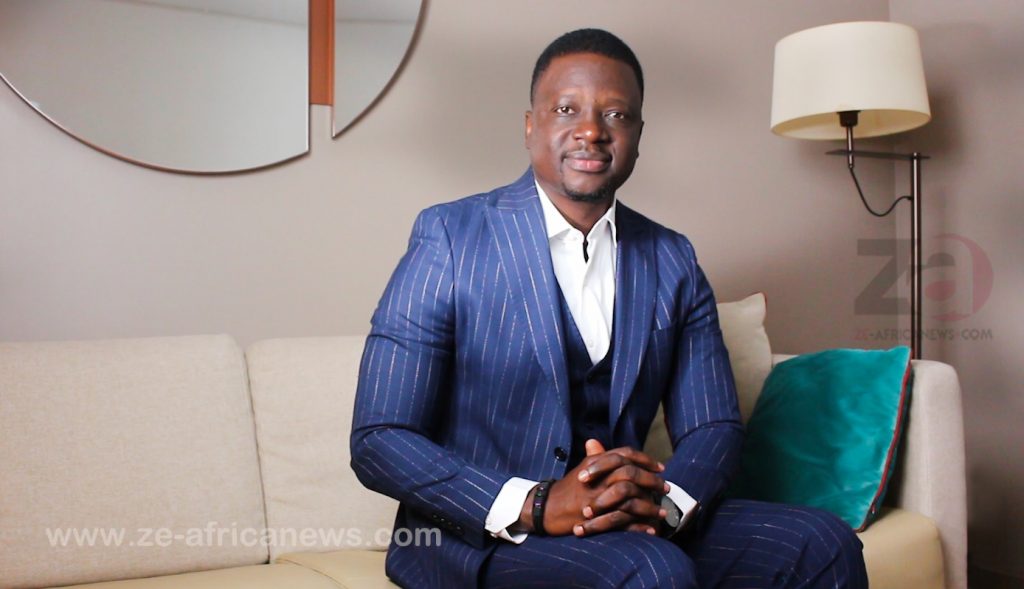
-

 EAST AFRICA1 year .
EAST AFRICA1 year .TANZANIA – President meets with Chairman of the Board and CEO of the Merck Foundation
-

 CHAUD TOO CHAUD3 years .
CHAUD TOO CHAUD3 years .POLITICS – [INTERVIEW EXCLUSIVE] – MADAGASCAR – Fanirisoa Ernaivo, a politician and activist committed to the rule of law and respect for democracy
-

 BUSINESS8 months .
BUSINESS8 months .GUINEA – Authorities demand repatriation of mining revenues
-
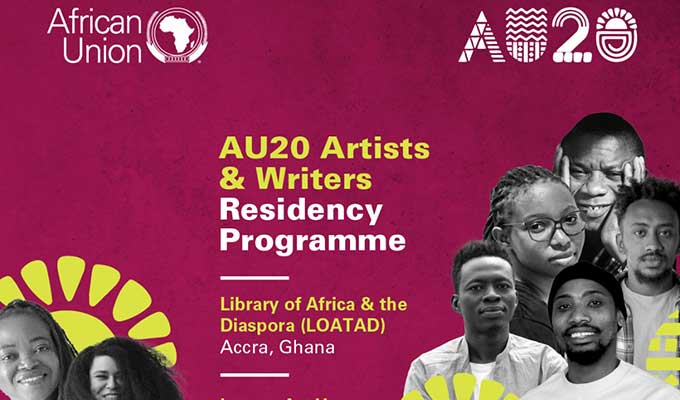
 CULTURE2 years .
CULTURE2 years .AFRICA – African writers and artists celebrate the 20th anniversary of the African Union
-

 POLITICS5 months .
POLITICS5 months .SENEGAL – Presidential election 2024: Registration of 79 candidates declared
-
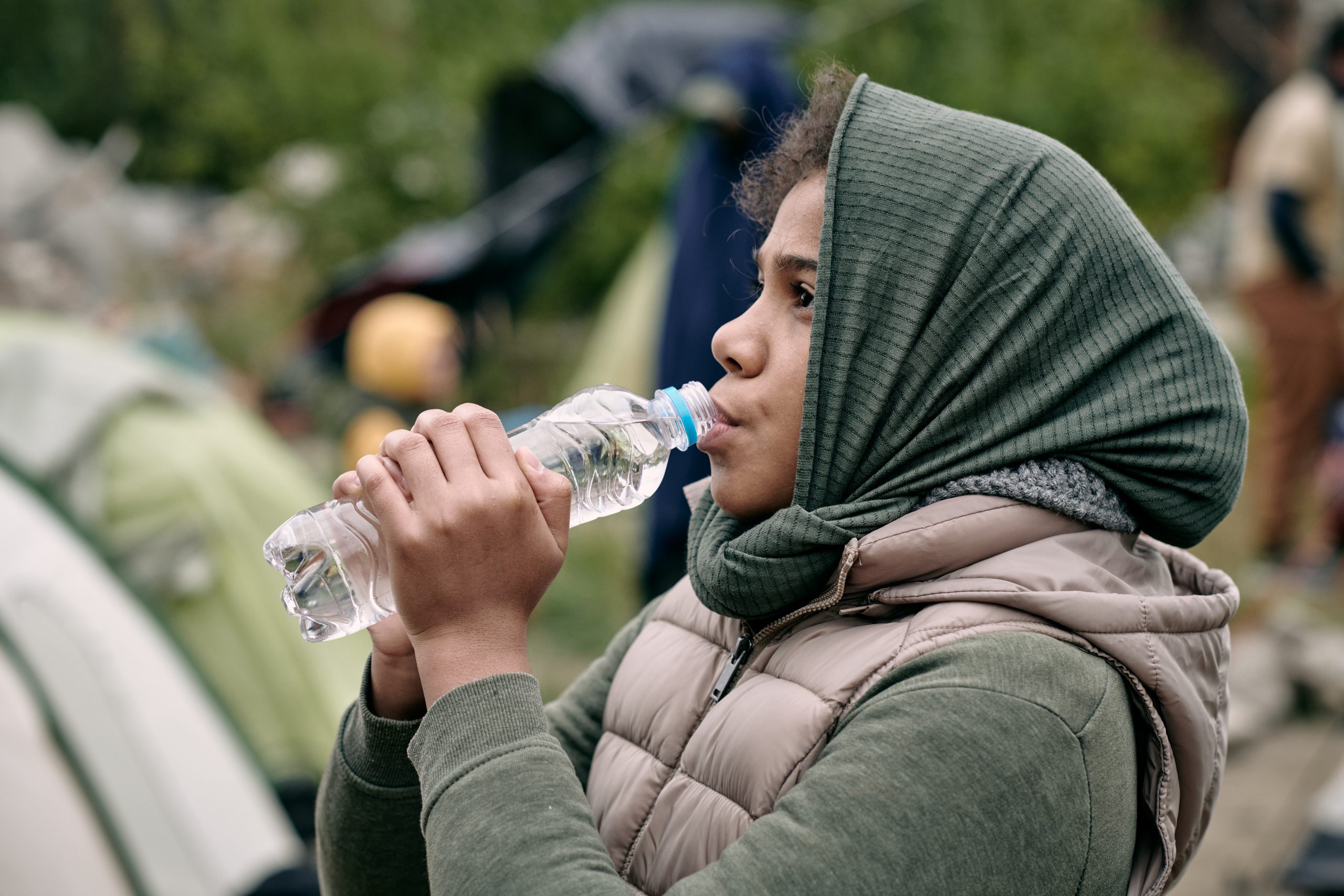
 IMMIGRATION10 months .
IMMIGRATION10 months .AFRICA – Migrant smuggling brings 59 billion CFA francs to smugglers per year
-

 CULTURE3 years .
CULTURE3 years .SENEGAL – “Sadik Lady” by Viviane Chidid
-

 POLITICS3 years .
POLITICS3 years .SOUTH AFRICA – Former President Jacob Zuma in prison



